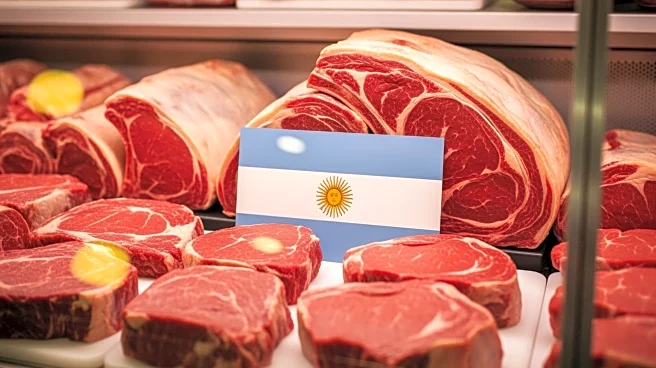What's Happening?
Agriculture Secretary Brooke Rollins discussed the U.S. beef industry on CNBC, addressing the rising beef prices under President Trump's trade policies. Rollins confirmed that the U.S. plans to import
beef from Argentina, despite the country facing foot and mouth disease issues. She emphasized the USDA's commitment to protecting the U.S. livestock industry from such diseases, including the screwworm threat from Mexico. Rollins also mentioned Health and Human Services Secretary Robert F. Kennedy Jr.'s 'Make America Healthy Again' initiative, although details were sparse.
Why It's Important?
The decision to import beef from Argentina, a country currently battling foot and mouth disease, raises concerns about the safety and security of the U.S. livestock industry. This move could impact domestic beef prices and consumer confidence in beef products. The USDA's assurance of protection measures is crucial to prevent potential outbreaks that could harm the industry. Stakeholders, including farmers and consumers, may face economic and health implications depending on how effectively these measures are implemented.
What's Next?
The USDA is expected to outline specific measures to ensure the safety of imported beef and protect the domestic livestock industry. Stakeholders, including farmers and industry groups, may seek clarity on these measures and their potential impact on beef prices and supply. The administration's trade policies and their effects on agriculture will likely continue to be scrutinized by industry experts and policymakers.
Beyond the Headlines
The importation of beef from Argentina highlights broader trade policy challenges under President Trump's administration. It underscores the complexities of balancing international trade with domestic industry protection, especially in agriculture. The situation may prompt discussions on the ethical and economic implications of importing food products from countries with known disease issues.










